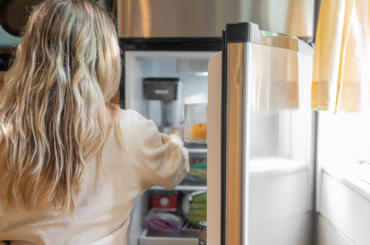Parenting is an extremely rewarding job, but it’s also one that never stops. From the 2 A.M. feedings of infancy to high school homework help, parents are on call 24 hours a day, seven days a week, for years. Juggling all those responsibilities, as a recent study published in Clinical Psychological Science revealed, can take a toll. The physical and psychological strain can result in parental burnout. The condition is caused by parenting stressors, combined with the often inadequate resources parents have to deal with all that stress.
Researchers set out to shine a light on the consequences of parental burnout for both parents and kids.
Parental burnout has a negative effect on every member of the family.
A concept that’s familiar to almost any parent, the condition is associated with three distinct traits:
- Feeling overwhelmingly exhausted by parenting
- Emotionally distancing yourself from your child
- Having the sense that you’re not a good enough parent
Obviously this would be taxing for parents. Participants in the study who experienced these feelings were identified as being at increased risk for wanting to escape their kids. However, parents with these symptoms were also more likely than non-burned-out parents to be neglectful—or even violent toward—their children.
“In the current cultural context, there is a lot of pressure on parents,” said researcher Moira Mikolajczak. “But being a perfect parent is impossible and attempting to be one can lead to exhaustion. Our research suggests that whatever allows parents to recharge their batteries, to avoid exhaustion, is good for children.”
Self care is key—but it’s not as simple as it sounds.
In Psychology Today, Dr. Robyn Koslowitz reassures parents that recharging your batteries isn’t selfish at all. In fact, she calls self care “the highest form of child-care – being present.” That’s because parents come back to their duties with renewed energy and patience when they take care of themselves.
While it’s clear that parents need self-care breaks, it isn’t always easy to get them. Factors like demanding work schedules, solo parenting, and the expense of childcare can make finding “me time” a challenge.
Joanna Eng, parenting expert here at ParentsTogether, has some suggestions for how parents can sneak a few minutes for themselves, even with financial and logistical factors in the way.
- When close friends or family members visit, ask beforehand if you can get a little alone time. Use those moments to run an errand, go for a walk, leave the house at night, or whatever would make you feel recharged.
- Set up a playdate where you agree to rotate supervision duties. That way, each parent gets 10 minutes to themselves with no interruption (barring a real emergency). You can also organize a more formal babysitting exchange with fellow parents—each time you provide an hour of free babysitting, you earn an hour from someone else.
- If your friends don’t have kids, discuss an agreement where they babysit for a certain amount of time in exchange for another service you can provide like dog walking, knitting a hat, proofreading a resume, etc.
- Bring your child outside, and let them get some fresh air while you exercise, tend to plants, or text with a friend. Babies can be quite content as long as you keep them within view in a portable crib; use a fitted sheet on top for protection against sun and bugs.
- For older children, create a daily “quiet time” routine. Set up a safe place for them to play independently for 30 minutes or an hour. Follow it up with something really fun and interactive, so they’ll have an incentive.
- Some establishments (like IKEA, and some gyms such as YMCA) offer free on-site childcare. This is usually available for kids who are potty trained and/or a certain age or height, so check ahead.
- Sign your child up for an enrichment program at the library. They’re often free of charge and many don’t require parents to attend, though you could also use the opportunity to sit in a quiet corner nearby and relax or read.
- Schedule a sleepover with your child’s best friend or cousin. Then offer to host next time so that everyone gets a chance for a child-free night.
If you have a partner or co-parent at home, take steps to ensure the household division of labor is split as equally as possible. This can alleviate the strain of one parent carrying the bulk of the responsibilities alone, which helps to head parental burnout off before it sets in.







